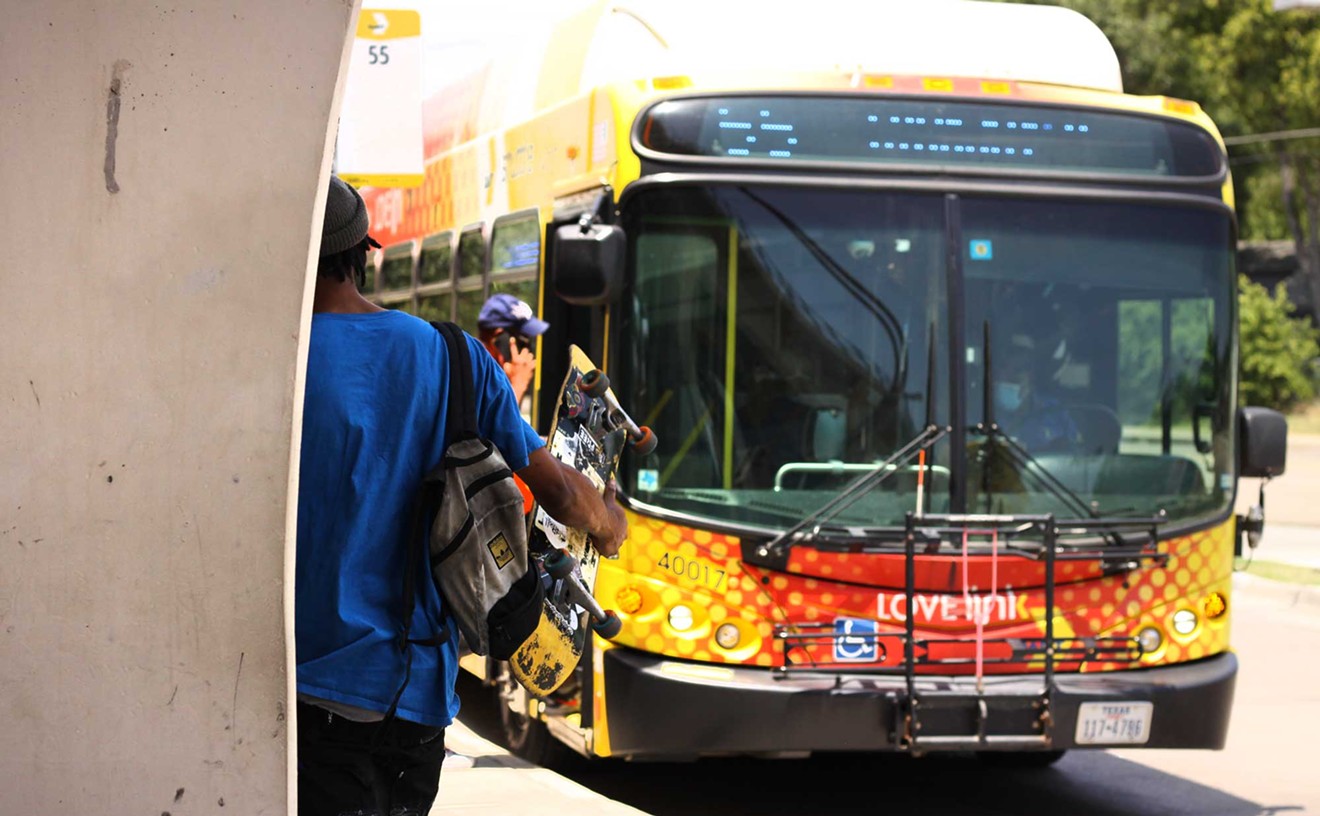A recent audit found flaws in the city’s process for investigating and determining whether a dog is aggressive or dangerous. For one thing, the process can be time-sensitive. Additionally, once a determination is made, Dallas can’t ensure owners of aggressive dogs are in compliance, which could lead to repeat attacks, according to the audit.
Updating the process and amending city code could lead to improvements, but the changes will have to be approved by the Dallas City Council. Whitney Bollinger, assistant director of Dallas Animal Services, told the Observer this could take as long as six months.
Dogs that harm people and other animals are divided into two categories in the city code: "dangerous" and "aggressive."
A dog is designated as dangerous if it commits an unprovoked attack causing bodily injury. It doesn’t have to cause bodily harm to be designated as dangerous, though. The dog could also be labeled dangerous if an unprovoked attack gives someone reason to believe it could cause bodily harm.
A dog can be labeled aggressive if, while it wasn’t restrained, it killed or injured another restrained animal. Some dogs fit into both categories.
As of mid-July, the city had documented 247 dangerous or aggressive dogs. There were 184 dangerous dogs, 96 aggressive ones and 33 that belonged to both categories.
The biggest shortcoming the audit found was an ineffective hearing process meant to ensure that owners of aggressive dogs were in compliance. Due to the way this section of city code was written in 2018, Dallas can’t hold legitimate and effective compliance hearings for owners of aggressive dogs.
The section of city code titled Requirements for Ownership of an Aggressive Dog; Noncompliance Hearing doesn’t offer any details on how these hearings should function. “Without details, no hearings are held,” the audit said.
The next section of the city code, Attacks by an Aggressive Dog, says these should be held in municipal court for a decision to be made by the director of animal services. But the director can’t make decisions for municipal courts. Because of this, the audit said, “Dallas Animal Services and the City Attorney’s Office concur that no effective hearings can occur.”
Bollinger said, “In clarifying the ordinances, the hearings process will be similar to that of the dangerous dog noncompliance hearings, which the audit found to be far more effective.”
Owners of dangerous dogs were more compliant. This might have something to do with the fact that city code details how noncompliance hearings for owners of dangerous dogs should take place.
However, when dealing with dangerous dogs or aggressive dogs, DAS doesn’t have formal procedures outside of these hearings to ensure that owners are meeting requirements. These include locking down liability insurance coverage or financial responsibility of at least $100,000; restraining the dog at all times; and other requirements.“[Dallas Animal Services] is committed to moving the process forward as efficiently as possible.” – Whitney Bollinger, Dallas Animal Services
tweet this
The city also doesn’t have a target timeframe for the entire investigation and determination process, which could prolong it to as long as 85 days. Most of the data for the audit was collected during the pandemic, which may have affected the timeliness of investigations and determination, the auditor noted in his report.
Investigations can usually be concluded in eight days – longer than the seven-day target – but they can hit a few snags along the way that extend the process to nearly three months. It may take time for a notice to investigate to hit the animal services department's inbox, which can cause delays. From there, it may take time for the agency to get to the investigation, and the final determination after the fact could cause the whole process to take even longer.
DAS "agrees that establishing an overall timeframe goal for completing the investigation and determination process will enhance the process and reduce public safety risk,” Bollinger said. “Our staff is currently analyzing the process to determine what that timeline should be; however, we have not yet reached a conclusion.”
The city also isn’t doing the best job at tracking dangerous and aggressive dogs. Most data about these dogs was stored in case files and spreadsheets, instead of in animal service's online information system. The information that was in the online system wasn’t all that reliable.
“Online registries of dangerous and aggressive dogs included duplicate entries and were not updated during a seven-month period in 2021,” the audit says.
There are also legal challenges to the process that the auditor said city staff should address, such as witnesses not attending hearings for cases on appeal.
“If the witness does not testify, as occurred for at least ten dogs since October 2018, that may factor into why the determination was overturned,” the audit said. “Several reasons were cited for witnesses not attending, such as a move to another city, an improved relationship with the dog or its owner, and concerns regarding the COVID-19 pandemic.”
Additionally, the City Attorney’s Office and animal services department disagree on the deadline for owners to surrender their dogs after they’re determined to be noncompliant.
The auditor hopes all of this can be addressed in updates to the department's procedures and amendments to the city code. It could take months, but Bollinger said, the team "is committed to moving the process forward as efficiently as possible."












